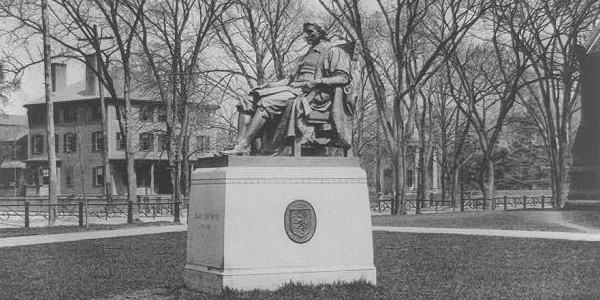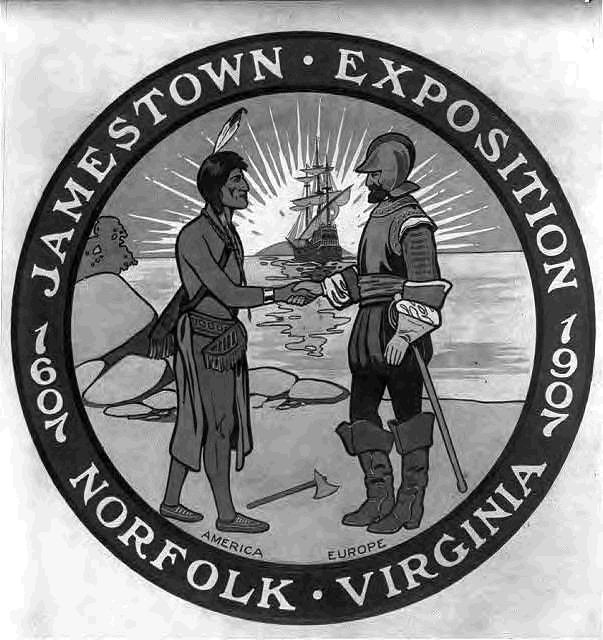Sponsor this page. Your banner or text ad can fill the space above.
Click here to Sponsor the page and how to reserve your ad.
-
Timeline
1636, 1650 Detail
October 28, 1636 - Harvard College is founded in Cambridge,
Massachusetts, the first college to be established in North America.
June 9, 1650 - The Harvard Board becomes the first legalized
corporation in the American colonies, fourteen years after the estabishment of Harvard College.

Fourteen years earlier, in 1636, Harvard College had been founded. Now, the Harvard Board, of the President and Fellows of Harvard College, for those on a full name basis, would become the first legal corporation in America. As one of two boards at the College (the other being the older, but more consultive Harvard Board of Overseers), the Harvard Board President, Henry Dunster, had an idea to incorporate the college with formal approval. So how did that happen? And what was its significance?
In 1650, Reverand Henry Dunster applied to the Great and General Court of Massachusetts, i.e. the legislature of the Massachusetts Bay Colony at the time, for a charter for his college. He had been named the college's first president in 1640. The charter was granted, and became the first legalized corporation in America. But changes would eventually come to the government of Massachusetts, yes, after the American Revolution would begin, leading to the Massachusetts Constitution, initiated in 1780. And the Harvard Board, representing Harvard College, was reaffirmed in their status and the college in its importance to the state.
Massachusetts Constitution, 1780, Harvard Board
Chapter V, THE UNIVERSITY AT CAMBRIDGE, AND ENCOURAGEMENT OF LITERATURE, ETC. Section I.
The University.
Article I. - Whereas our wise and pious ancestors, so early as the year one thousand six hundred and thirty-six, laid the foundation of Harvard College, in which university many persons of great eminence have, by the blessing of God, been initiated in those arts and sciences, which qualified them for public employments, both in church and state: and whereas the encouragement of arts and sciences, and all good literature, tends to the honor of God, the advantage of the Christian religion, and the great benefit of this and the other United States of America -- it is declared, that the President and Fellows of Harvard College,in their corporate capacity, and their successors in that capacity, their officers and servants, shall have, hold, use, exercise and enjoy, all the powers, authorities, rights, liberties, privileges, immunities and franchises, which they now have or are entitled to have, hold, use, exercise and enjoy: and the same are hereby ratified and confirmed unto them, the said president and fellows of Harvard College, and to their successors, and to their officers and servants, respectively, forever.
Article II. - And whereas there have been at sundry times, by divers persons, gifts, grants, devises of houses, lands, tenements, goods, chattels, legacies and conveyances, heretofore made, either to Harvard College in Cambridge, in New England, or to the president and fellows of Harvard College, or to the said college, by some other description, under several charters successively: it is declared, that all the said gifts, grants, devises, legacies and conveyances, are hereby forever confirmed unto the president and fellows of Harvard College, and to their successors in the capacity aforesaid, according to the true intent and meaning of the donor or donors, grantor or grantors, devisor or devisors.
Article III. - [And whereas, by an act of the general court of the colony of Massachusetts Bay passed in the year one thousand six hundred and forty-two, the governor and deputy-governor, for the time being, and all the magistrates of that jurisdiction, were, with the president, and a number of the clergy in the said act described, constituted the overseers of Harvard College: and it being necessary, in this new constitution of government to ascertain who shall be deemed successors to the said governor, deputy-governor and magistrates; it is declared, that the governor, lieutenant governor, council and senate of this commonwealth, are and shall be deemed, their successors, who with the president of Harvard College, for the time being, together with the ministers of the congregational churches in the towns of Cambridge, Watertown, Charlestown, Boston, Roxbury, and Dorchester, mentioned in the said act, shall be, and hereby are, vested with all the powers and authority belonging, or in any way appertaining to the overseers of Harvard College; provided, that] nothing herein shall be construed to prevent the legislature of this commonwealth from making such alterations in the government of the said university, as shall be conducive to its advantage and the interest of the republic of letters, in as full a manner as might have been done by the legislature of the late Province of the Massachusetts Bay.
Buy Chronology

How Harvard College Was Founded
The Great and General Court of the Massachusetts Bay Colony thought that an institution of higher learning should be located within the colony and voted to establish a college, to be located in Newetowne (later renamed Cambridge), with L400 as its dowry. It would begin on October 28, 1636, with a young minister as its benefactor, John Harvard. Harvard had recently graduated from Cambridge University in England the year before.
The colony purchased one acre of land and a house from Goodman Peyntree south of today's Old Yard. Markers now denote the location of the home, although all of the earliest buildings no longer exist. The first printing press in the American colonies was purchased for the college in 1638. There were nine students at the first graduation in 1642; now Harvard University has over twenty thousand students in its enrollment. When John Harvard died in 1938, he left his four hundred book library and half of his estate, L779, to the college. The college was named after him in 1639. Many of its first graduates were trained to be Puritan ministers, although the college, then university, was never affiliated with any denomination.
Source: Statue of John Harvard, 1891, Charles H. Thurston. Courtesy Library of Congress. Image below: Harvard House, 1899, Detroit Publishing Company. Courtesy Library of Congress. Info source: malegislature.gov; Harvard University; Harvard University Student Handbook; Wikipedia.

History Photo Bomb

In 1650, Reverand Henry Dunster applied to the Great and General Court of Massachusetts, i.e. the legislature of the Massachusetts Bay Colony at the time, for a charter for his college. He had been named the college's first president in 1640. The charter was granted, and became the first legalized corporation in America. But changes would eventually come to the government of Massachusetts, yes, after the American Revolution would begin, leading to the Massachusetts Constitution, initiated in 1780. And the Harvard Board, representing Harvard College, was reaffirmed in their status and the college in its importance to the state.
The University.
Article I. - Whereas our wise and pious ancestors, so early as the year one thousand six hundred and thirty-six, laid the foundation of Harvard College, in which university many persons of great eminence have, by the blessing of God, been initiated in those arts and sciences, which qualified them for public employments, both in church and state: and whereas the encouragement of arts and sciences, and all good literature, tends to the honor of God, the advantage of the Christian religion, and the great benefit of this and the other United States of America -- it is declared, that the President and Fellows of Harvard College,in their corporate capacity, and their successors in that capacity, their officers and servants, shall have, hold, use, exercise and enjoy, all the powers, authorities, rights, liberties, privileges, immunities and franchises, which they now have or are entitled to have, hold, use, exercise and enjoy: and the same are hereby ratified and confirmed unto them, the said president and fellows of Harvard College, and to their successors, and to their officers and servants, respectively, forever.
Article II. - And whereas there have been at sundry times, by divers persons, gifts, grants, devises of houses, lands, tenements, goods, chattels, legacies and conveyances, heretofore made, either to Harvard College in Cambridge, in New England, or to the president and fellows of Harvard College, or to the said college, by some other description, under several charters successively: it is declared, that all the said gifts, grants, devises, legacies and conveyances, are hereby forever confirmed unto the president and fellows of Harvard College, and to their successors in the capacity aforesaid, according to the true intent and meaning of the donor or donors, grantor or grantors, devisor or devisors.
Article III. - [And whereas, by an act of the general court of the colony of Massachusetts Bay passed in the year one thousand six hundred and forty-two, the governor and deputy-governor, for the time being, and all the magistrates of that jurisdiction, were, with the president, and a number of the clergy in the said act described, constituted the overseers of Harvard College: and it being necessary, in this new constitution of government to ascertain who shall be deemed successors to the said governor, deputy-governor and magistrates; it is declared, that the governor, lieutenant governor, council and senate of this commonwealth, are and shall be deemed, their successors, who with the president of Harvard College, for the time being, together with the ministers of the congregational churches in the towns of Cambridge, Watertown, Charlestown, Boston, Roxbury, and Dorchester, mentioned in the said act, shall be, and hereby are, vested with all the powers and authority belonging, or in any way appertaining to the overseers of Harvard College; provided, that] nothing herein shall be construed to prevent the legislature of this commonwealth from making such alterations in the government of the said university, as shall be conducive to its advantage and the interest of the republic of letters, in as full a manner as might have been done by the legislature of the late Province of the Massachusetts Bay.
Buy Chronology

The colony purchased one acre of land and a house from Goodman Peyntree south of today's Old Yard. Markers now denote the location of the home, although all of the earliest buildings no longer exist. The first printing press in the American colonies was purchased for the college in 1638. There were nine students at the first graduation in 1642; now Harvard University has over twenty thousand students in its enrollment. When John Harvard died in 1938, he left his four hundred book library and half of his estate, L779, to the college. The college was named after him in 1639. Many of its first graduates were trained to be Puritan ministers, although the college, then university, was never affiliated with any denomination.
Source: Statue of John Harvard, 1891, Charles H. Thurston. Courtesy Library of Congress. Image below: Harvard House, 1899, Detroit Publishing Company. Courtesy Library of Congress. Info source: malegislature.gov; Harvard University; Harvard University Student Handbook; Wikipedia.







